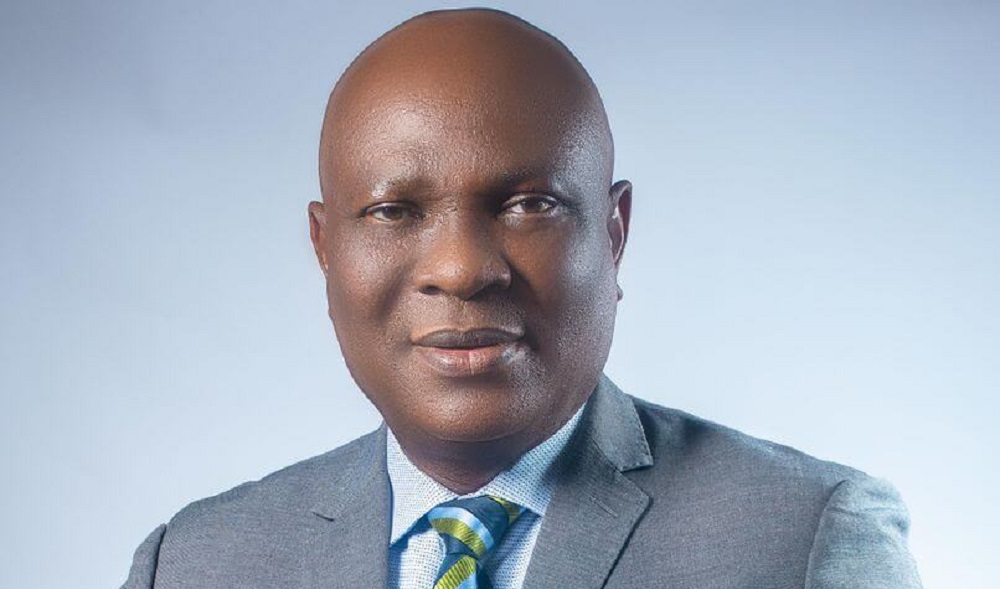Weak Demand, Insecurity Justify IMF Growth Downgrade – Financial Expert

A financial expert has supported the International Monetary Fund’s (IMF) recent downward revision of Nigeria’s economic growth forecast, citing weakening consumer demand and rising insecurity as major factors undermining the country’s economic prospects.
Managing Director of Highcap Securities Limited, Mr David Adonri, in an exclusive chat with THE WHISTLER, described the IMF’s decision as “justified and reflective of the economic realities on the ground”, noting that inflation has severely eroded consumer purchasing power, while insecurity has disrupted supply chains and productive activity across critical sectors.
“With galloping inflation already eroding consumers’ ability to spend, it’s only natural that demand is expected to be weak,” Adonri said. “Under such circumstances, the IMF’s decision to revise Nigeria’s economic growth rate downward reflects a sobering reality.”
The IMF recently downgraded Nigeria’s growth projection for 2025, citing persistent macroeconomic headwinds.
The revised outlook factors in sustained inflationary pressure, foreign exchange volatility, and the country’s ongoing struggle with security challenges that have destabilised key agricultural and industrial zones.
According to Adonri, the fragility of Nigeria’s economy stems not only from declining demand but also from a crippled supply side. He emphasised that insecurity, particularly in food-producing and manufacturing regions, continues to hinder production, distribution, and investment.
“The fragility of the Nigerian economy is not solely on the demand side,” he stated. “Supply has also been crippled by widespread insecurity. From farmers abandoning their farmlands to manufacturers contending with logistical and safety concerns, the supply side of the economy is under siege.”
Adonri warned that this “double-edged sword”—a combination of weak demand and supply disruptions—is worsening the hardship faced by millions of Nigerians, leading to heightened economic misery and declining living standards.
“This double blow is making life increasingly miserable for citizens on a daily basis,” he noted, calling for urgent and coordinated policy actions.
Economic analysts have echoed Adonri’s sentiments, urging the Nigerian government to implement structural reforms aimed at addressing inflation, stabilising the exchange rate, improving national security, and fostering a conducive environment for investment and productivity.
Despite a slight decline in Nigeria’s inflation rate, investor confidence remains tepid as concerns persist over the credibility of official economic data and global uncertainties.
This is according to Adonri, who said investors are taking a cautious approach even as they await the release of first-quarter (Q1) 2025 corporate earnings.
The National Bureau of Statistics (NBS) recently reported a drop in headline inflation to 24.18 per cent in March 2025, down from 23.18 per cent in February, signalling a potential reversal of Nigeria’s persistent inflationary trend.
However, Adonri noted that many investors remain sceptical about the reliability of official statistics and are hesitant to base decisions on them.
“The marginal drop in inflation figures suggests a reversal of the trend, which under normal circumstances could be seen as positive for investment planning,” Adonri said. “However, investors are not really relying on inflation data from the NBS due to low confidence in the authenticity and accuracy of the figures.”
He explained that distrust in economic data, combined with lingering macroeconomic uncertainties, is dampening investor enthusiasm. Market participants, he noted, are shifting their focus toward more tangible indicators—chief among them, the Q1 financial results of listed companies.
“With the earnings season now behind us, investors are turning their attention to the Q1 2025 results to guide their next moves in the capital market,” Adonri said.
He also pointed to global factors as a source of investor caution, particularly the potential impact of policies from the United States under the renewed presidency of Donald Trump. The anticipation of Trump’s next economic decisions—many of which have historically had significant global ripple effects—is weighing on investor sentiment, particularly in emerging markets like Nigeria.
“Given President Trump’s history of unpredictable and often disruptive economic policies, investors are closely watching for any moves that could affect capital flows, commodity prices, or foreign exchange dynamics,” Adonri warned.
He stressed the need for greater transparency in economic data reporting and policy consistency to rebuild market confidence and stimulate sustained investment in Nigeria’s financial markets.
As the Nigerian economy continues to navigate internal structural challenges and external shocks, analysts have reiterated calls for stronger institutional reforms and enhanced data credibility to foster a more stable and predictable investment environment.
Weak Demand, Insecurity Justify IMF Growth Downgrade – Financial Expert is first published on The Whistler Newspaper




